Raw Meat And Seafood
You probably aren’t too surprised that raw meat and seafood are on our list. These are not your friends when it comes to keeping a healthy gut when traveling. Meat that hasn’t been properly cooked poses a great risk to your health, even in developed countries with strict regulations like the United States.


According to the Centers for Disease Control, even meat that has been cooked in acid such as vinegar isn’t totally safe to consume during your travels. These meats are likely to have germs floating around the juices and you definitely don’t want those within your system!
Bushmeat
Most of you probably don’t even know what bushmeat is. Bushmeat happens to be game meat that comes from non-domesticated mammals, reptiles, amphibians, and wild birds. Think local game meat: bats, monkeys, rodents… According to experts these animals have high chances of having diseases like Ebola or SARS.
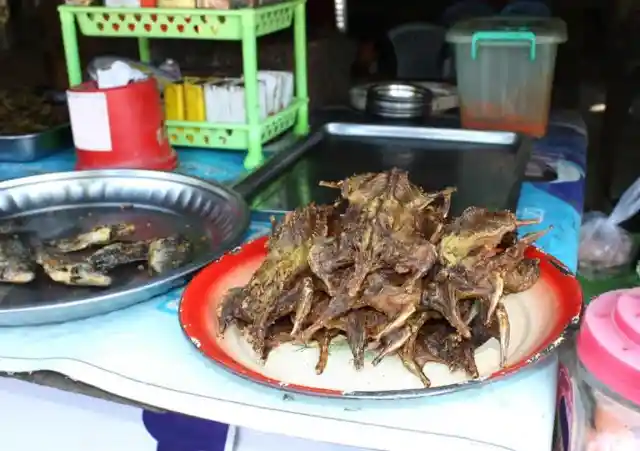
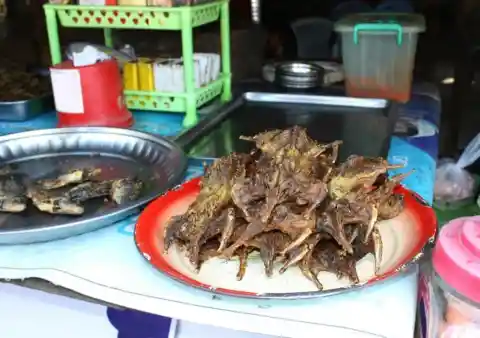
If you get unlucky, animals that carry these diseases can be life-threatening when consumed. So if you find yourself browsing for some exotic food on the street, make sure to ask the street vendors what exactly you are putting inside your mouth. In other words, avoid trying what could potentially be a disease-carrying animal!
Berries
Berries? Seriously? How can these be on the list of foods that doctors suggest to avoid? Berries are known for their high antioxidants, but the reason why doctors recommend against these while traveling is that they don’t have a protective skin. Think about bananas or mandarins… all of those have protective skins that you must peel off prior eating.
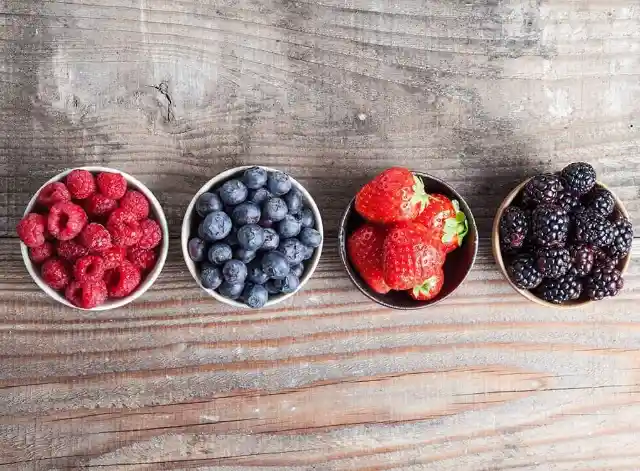
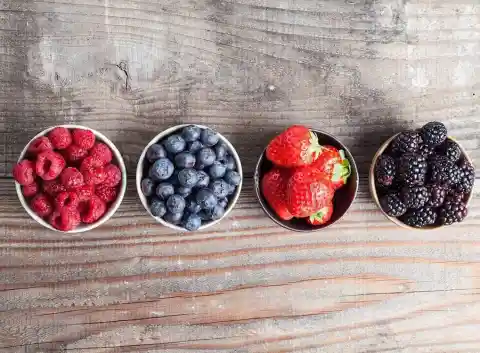
Since local water in less developed countries is not safe to drink, food that has been washed with this water is not advised for consumption! If you find berries abroad, they most likely have been washed with unsafe drinking water, which is full of bacterial pathogens you want to stay away from.
Apples
An apple a day keeps the doctor at bay! Or does it? Apples are actually another product that is recommended to stay away from while abroad. The only apple you should even consider eating is the one that you yourself have washed with clean water.
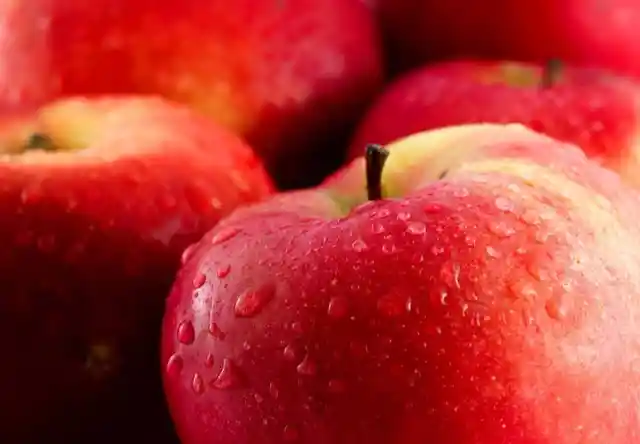

Wanna take an extra step of precaution? After you have washed your apple with water you know to be clean, make sure to peel the skin off. This decreases the risk of contagion. If you are crazy about getting that apple squeaky clean, the trick is to wash it with baking soda. Mixing one tablespoon of baking soda with two cups of water should do it.
Frozen Foods
What would we do without frozen foods? They’re so convenient and practical, especially when traveling. Well, we have bad news. According to some doctors, frozen foods pose some risk while they sit in the freezers. This is owed to the continuous freezing and thawing that they go through when taken out of the freezer and then put back in.
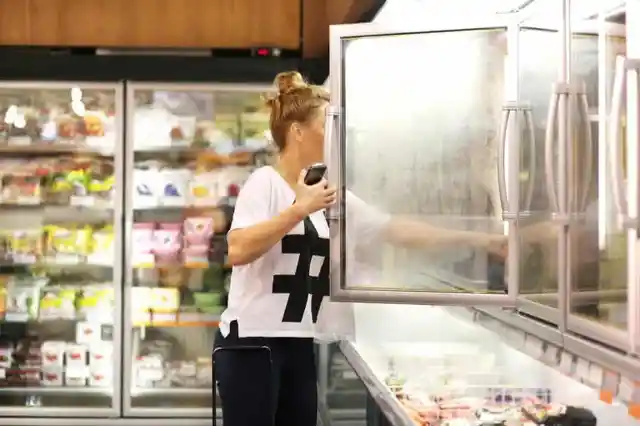

Scientists say that freezing and thawing can lead to the growth of bacteria. Additionally, the ice that is used to freeze these foods in the first place usually comes from contaminated water. However, we should also take into consideration that other frozen foods aren’t so good when it comes to maintaining nutrients, given many of these are frozen at their peak stage.
Sauces And Spices
Dipping that sushi in some delicious soy sauce? Not only should you be wary about raw fish as seen in #20, but something you should also watch out for when eating some Japanese food is the sauces and spices you are consuming. This is because you don’t know what ingredients these are made out of.
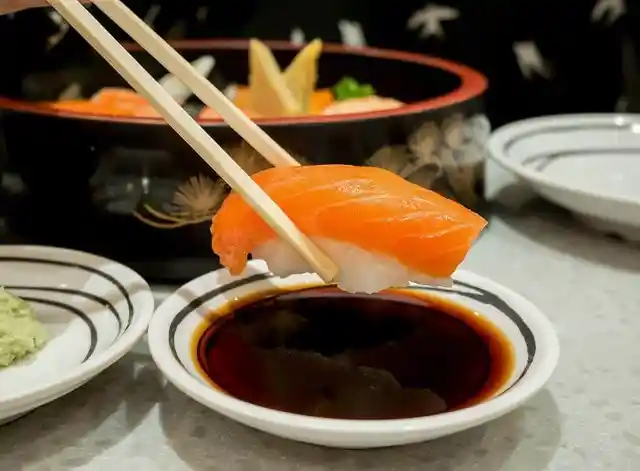
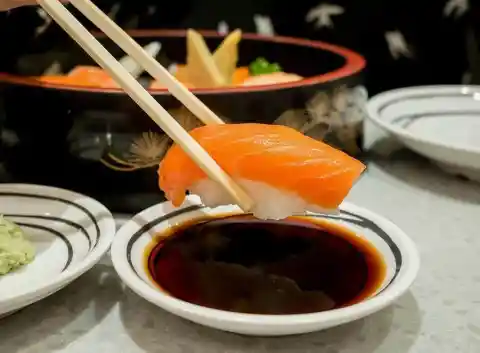
You must always know what the sauces or condiments that you add to your meal are made out of. If not, you’re exposed to the risk of eating contaminated water, uncooked herbs or even uncooked eggs. These all pose a significant threat to your well-being! If you must try out a local sauce, be sure that whatever you’re putting in your mouth has been thoroughly cooked and is still hot. Any lukewarm sauces are a no-no.
Shellfish
If you are having shellfish for the first time in your life, doing so abroad is definitely not a good idea. Number one, your dream vacation might quickly become a catastrophe if you find out that you are allergic to shellfish. Yep, shellfish is quite a common allergy.
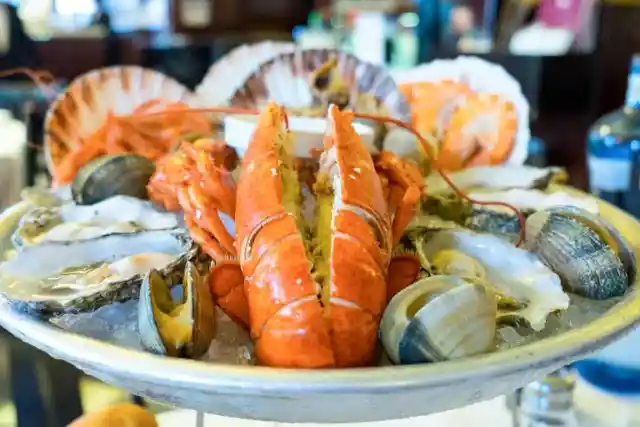
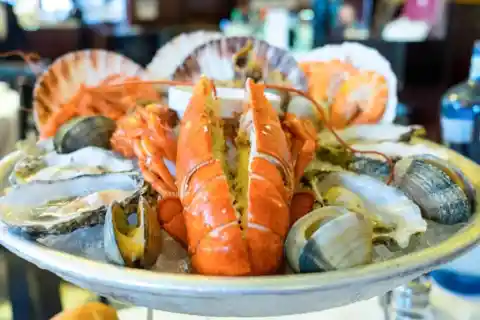
For those that have already eaten shellfish before and are sure that they aren’t allergic, you should consider the fact that shellfish are bottom feeders. This means that they tend to carry more bacteria than other seafood selections such as fish. If you’re feeling adventurous and want a taste of that clam on the menu, be sure that the restaurant cooks it thoroughly!
Raw Vegetables
Oh, vegetables! Hundreds of different diets are thrown at us, but all of them have something in common, and that is that they include vegetables. However, when it comes to traveling abroad, eating RAW vegetables might not be the best idea, especially if it is a country that is heavy on pollution.
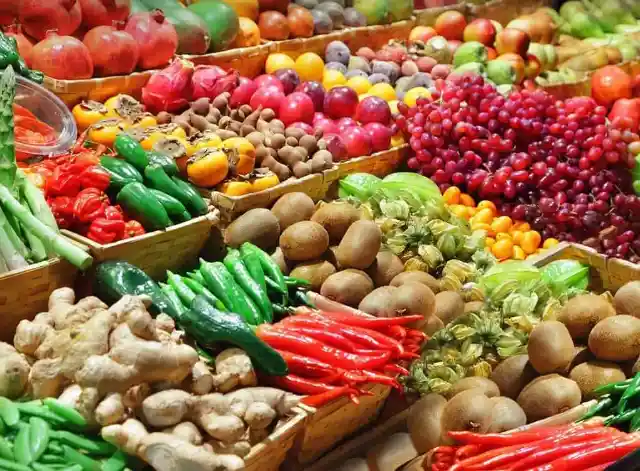
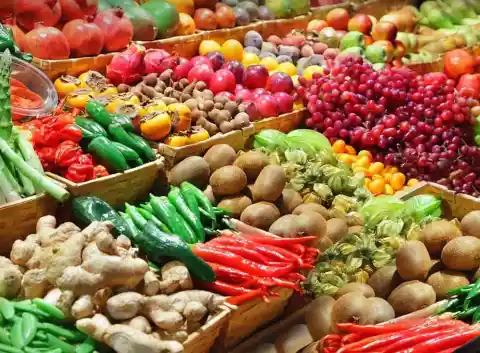
Fruits and vegetables that grow close to the ground are harder to keep clean. Take lettuce or carrots, for instance. If you are craving a salad with fresh vegetables while traveling, opt for the one that has not been washed with water. Even if you want to eat fruits and vegetables that have been cut, you should be very careful. These have very likely been washed with local water, which in most cases, is not safe to drink.
Unpasteurized Dairy Products
If you come from a developed country, it is most likely that the milk you drink has undergone a strict process of pasteurization. However, food regulations vary depending on the country, and most of them are not nearly as strict as those from the US. Therefore, you shouldn’t try out local dairy products if you aren’t sure whether they have been pasteurized or not.


Unpasteurized products pose a high risk to our health and safety because these can carry diseases like Salmonella, E. coli, Listeria, and other foodborne illnesses, all of which can be life-threatening. Pasteurized milk has undergone a process that kills harmful bacteria by heating the raw milk at a specific temperature, which is why you should always opt for this choice!
Circumspect Street Food
This one isn’t so much about a specific food you should avoid. Instead, it is more of a tip when it comes to street vendor food. Countries like Thailand and Mexico are renowned for their street food, and we wouldn’t blame you for having them on your list of to-do. So here are a few tips.
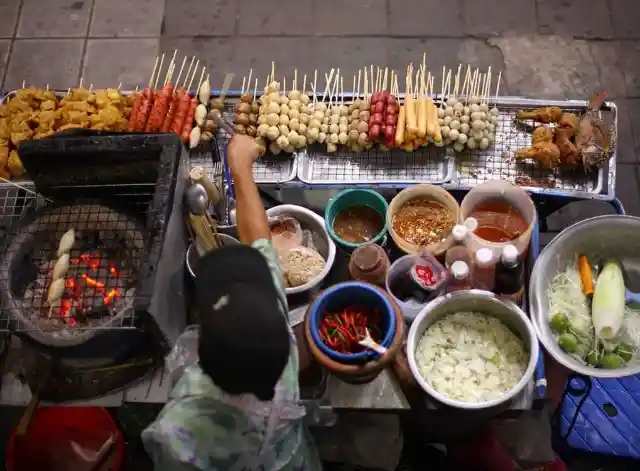
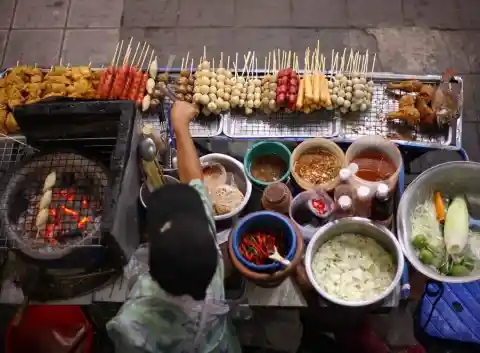
Make sure that the stall you pick is clean. Walk away if the stall has bits of food and trash around. Secondly, look around the stall. If there is a long line of people eager to eat food from that vendor, you’re probably safe. Lastly, you are doing your stomach a great favor if you only eat meat that is being covered while cooked by the vendor.
Ice Cream
Ice cream is another big no-no when traveling abroad, especially when it’s sold by a small vendor on the street and when there is nobody in line. Don’t worry though, if you are traveling to Italy and want a taste of their famous gelato, go for it! The rule only applies to places that aren’t well known or famous. So if you located the best gelato store in Italy, you’re definitely safe.
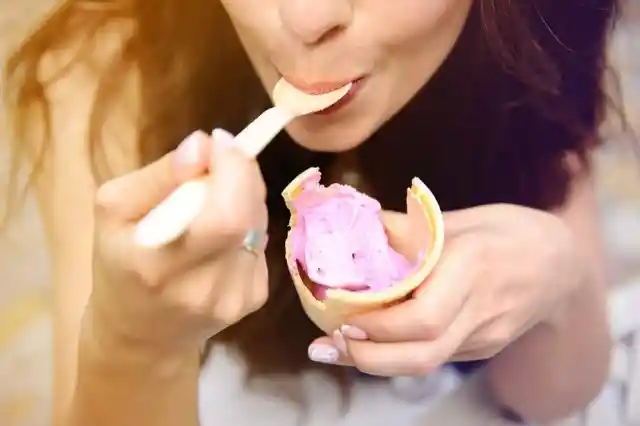

Maybe you are really really really craving something sweet and frozen. If that is the case and you cannot find any well-known store nearby, choose a fruit sorbet. Fruit sorbets have a higher concentration of acid, which tends to be better when it comes to keeping bacteria out of your sweet treat.
Deli Meat And Cheese
As we discussed above, meat that isn’t fresh off the grill is not ideal for delicate stomachs. So if you grew up in a developed country where food is squeaky clean, be sure to stay away from these! Doctors and physicians strongly recommend sticking to steaming hot food when you are in an unfamiliar environment.
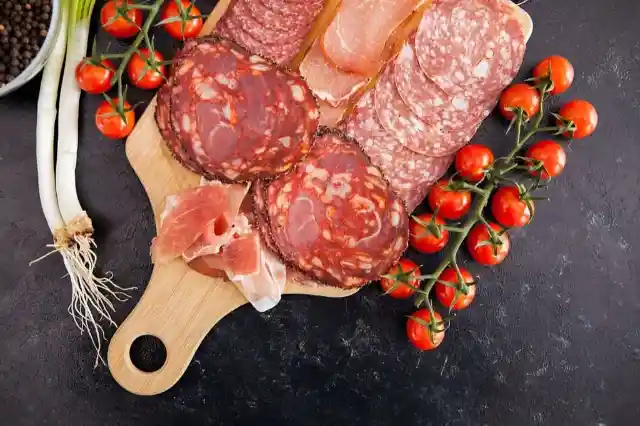

Deli cheese also poses a threat to your health because if it has been left for long in that refrigerator along other meats sharing the same air. Thus, it is very likely that bacteria are growing nearby. If you want to have some cheese, try to choose one that is tightly wrapped and closed in its packaging.
Chicha
If you are traveling to South or Central America, you might come upon this famous drink called Chicha. Chicha is a fermented alcoholic beverage that is derived from grains, maize or fruit. The issue of safety comes when your destination is the Amazon Basin and you are being offered Chicha by a local tribesman.
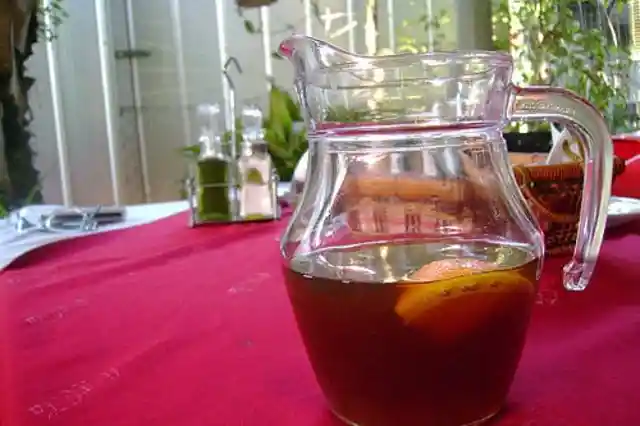
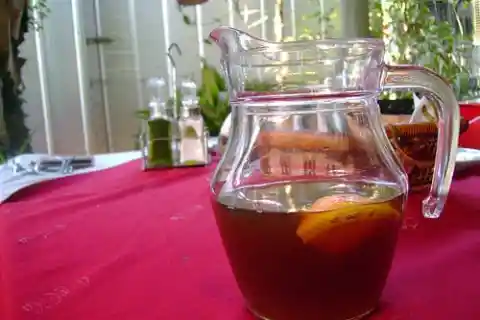
People in the Amazon Basin make Chicha in a very special way. This means that the fermented beverage has a surprise ingredient, that being saliva. It’s customary that women from the tribe chew cassava root to then spit it back into the mixture that will later become Chicha.
Food From Empty Restaurants
There is a reason why a restaurant is empty. Much like street vendors, you are safer if you decide to stay away from an empty restaurant, particularly if it’s peak hour. Whatever the reason may be, there is no such thing as being too careful and opting for a restaurant that has at least a few occupied tables.


Explore the area a little more and head to a restaurant that is popular; whether it is with tourists or with locals. The bigger issue when it comes to empty restaurants is that you cannot even see how the food is prepared. So in a way, these are more dangerous than empty street vendors.
Buffets
If you have a huge stomach and are easy to please, buffets are the place where you wanna go. But wait! Not so fast. Buffets are actually a cozy breeding spot for bacteria to thrive in. If the food has been out there for a while, chances are that some bacteria have already started growing in one of those containers.
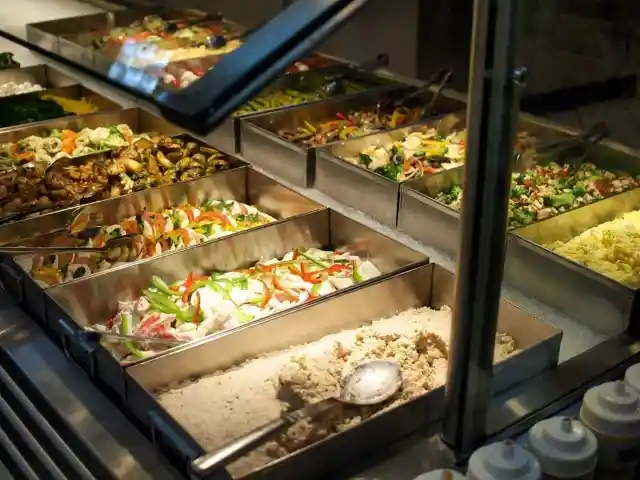
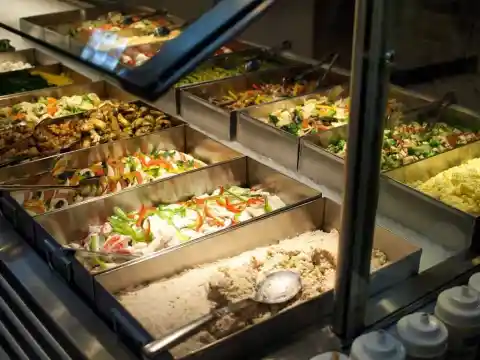
While this doesn’t mean that every buffet is infested with bacteria, it is better to be safer than sorry and head to a restaurant that is not a buffet. Do you wanna know the bonus of not eating at a buffet? These places brimming with food tend to be higher in calories and since you don’t have to pay for every different selection you put on your plate, it is a lot easier to go overboard and overeat.
Salad
If you know somebody who is trying to be healthy, they are very likely eating some sort of salad for a few meals. This is because salad with fresh vegetables is known as a healthier option. However, you should be wary about this option when traveling, even more so because the recent outbreak of E. Coli in the US was tracked down to our favorite Romain lettuce, a famous ingredient for salads.
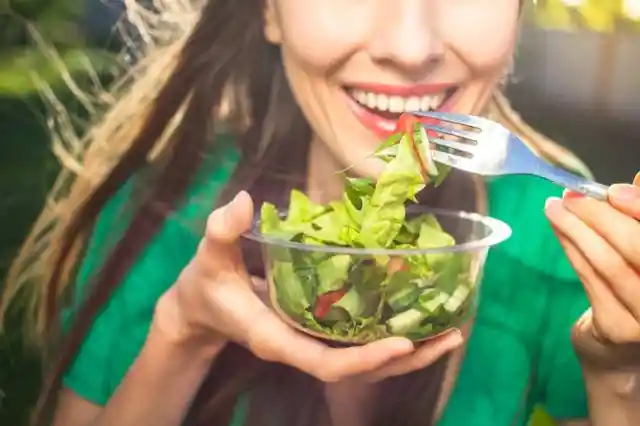

So if you are really craving something healthy and green, take the time to find an option that has been pre-packaged and that hasn’t had any contact with local water sources. This rule especially applies if you find yourself in a developed country with questionable tap water.
Fried Rice
This famous Chinese dish might seem innocent, but underneath that delicious smell lies a potential threat to your health! Most fried rice is cooked with small pieces of meat, which have a high chance of picking up bacteria and other diseases because these tend to be pieces that are flash-fried.
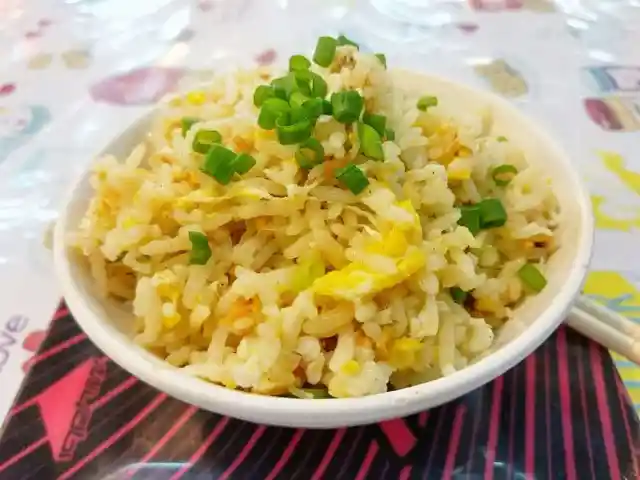

Experts recommend that if you are in an Asian restaurant, you should opt for a hot broth. These are steaming hot, which means all bacteria are most likely dead. A hot broth is also very refreshing and soothing; not only is it a lot safer than fried rice but it also hydrates and gives you good energy.
Tap Water
You should know at this point that tap water is definitely not something you should be trying when traveling abroad. We already discussed the risks of eating foods that have been washed with local water, let alone actually drinking water from the tap in a foreign country whose sources are questionable.


It is highly recommended that travelers carry at all times a bottle with clean water with them. If you find yourself in a situation where you need water and the only option is tap, make sure you boil it beforehand. Pay particular attention if you are visiting one of the following countries or areas: Mexico, Congo, Pakistan, Ghana, Nepal, Cambodia, Nigeria, China, Russia, Turkey, and most of the continent of South America. These are known for having the worst drinking water.
Fountain Drinks
Fountain Drinks are super popular in the States. You find them everywhere and you don’t question them. However, while those found in the US might be safe to drink, the same cannot be said for other countries. Most of these fountain drinks are made with local tap water and at this point, we all know what that means!
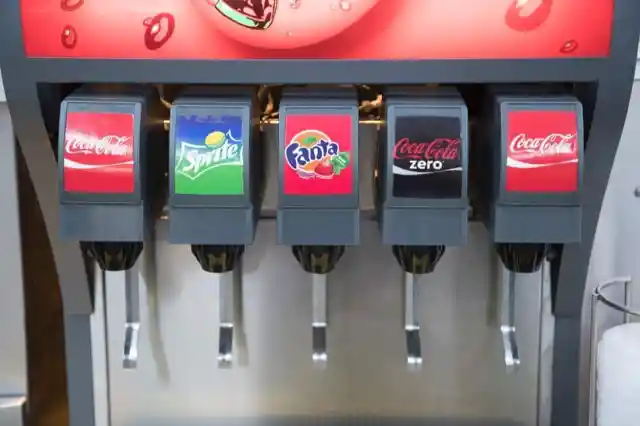
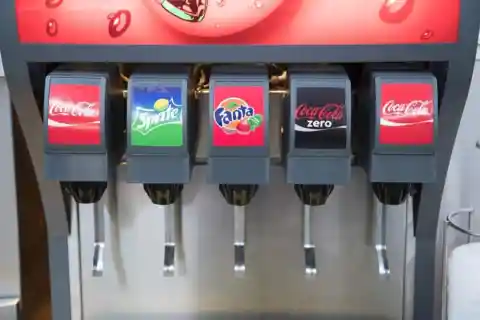
So next time you are trying to get yourself your weekly fix of a carbonated drink, opt for the ones that are tightly closed. Your choice of soft drink while traveling abroad is best found in the form of a can or a bottle. Think twice before you take a sip of that coke at a restaurant where you didn’t see the source of your drink!
Ice
Ah, the all-time favorite companion of the American beverage. America is known for serving its drinks in a tall glass filled to the brim with ice. Careful about this custom because if you find yourself abroad, ice is usually made out of… you guessed it! Of local tap water. We all know what that implies!
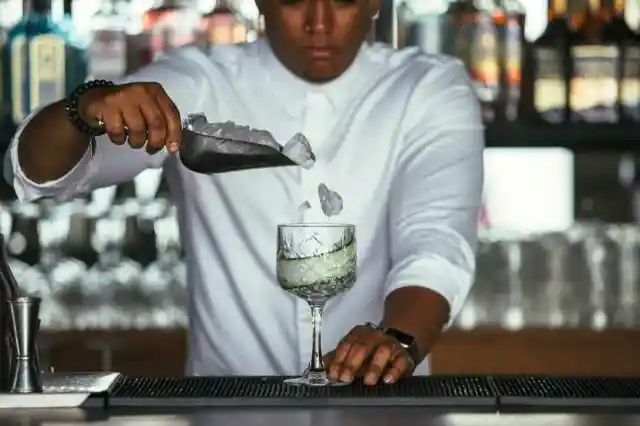
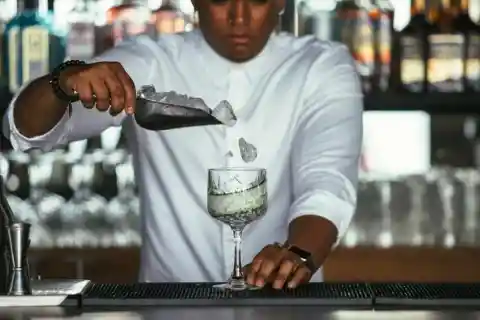
So if you feel like drinking a glass of whiskey, while you might be used to drinking it with some ice, opt for taking it neat. This means unmixed and without added water, ice, or any other mixer. And if you must have that cold whiskey, be sure to be taking it at a top-notch restaurant or at a bar that is known for its alcohol!